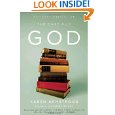 Having considered in my past posts all my concerns with Armstrong’s book, The Case for God, I wish to now address the most important subject of them all: Where do Armstrong and other non-literal believers stand on the issue of whether or not falsehoods are (or at least can be) better than truth?
Having considered in my past posts all my concerns with Armstrong’s book, The Case for God, I wish to now address the most important subject of them all: Where do Armstrong and other non-literal believers stand on the issue of whether or not falsehoods are (or at least can be) better than truth?
This may seem like a strange question. To help explain why this question is so important, I need to point you to an excellent post done by AndrewS a while back entitled “Why New Atheists are the Dullest People in the World“. [1] (See here for original post from Leah.)
Non-Literal Theists vs. Miliant Atheists
In this post, AndrewS tells the story of Leah and her realization that despite being a non-literal believer she was still a “Raging Religion-oholic.” Another poster named brillientk89 — a new atheist (i.e. militant atheist) — took issue with her non-literal theists views. AndrewS, who is also an atheist, defended her views. His key point is that brillientk89’s stance is so militantly in favor of ‘truth’ that he makes no room for even fiction. (Thus the reference to being ‘dull.’) [2]
Here is a key part of the ‘exchange’ between Leah (the non-literal theist) and brillentk89 (the militant atheist): Continue reading


